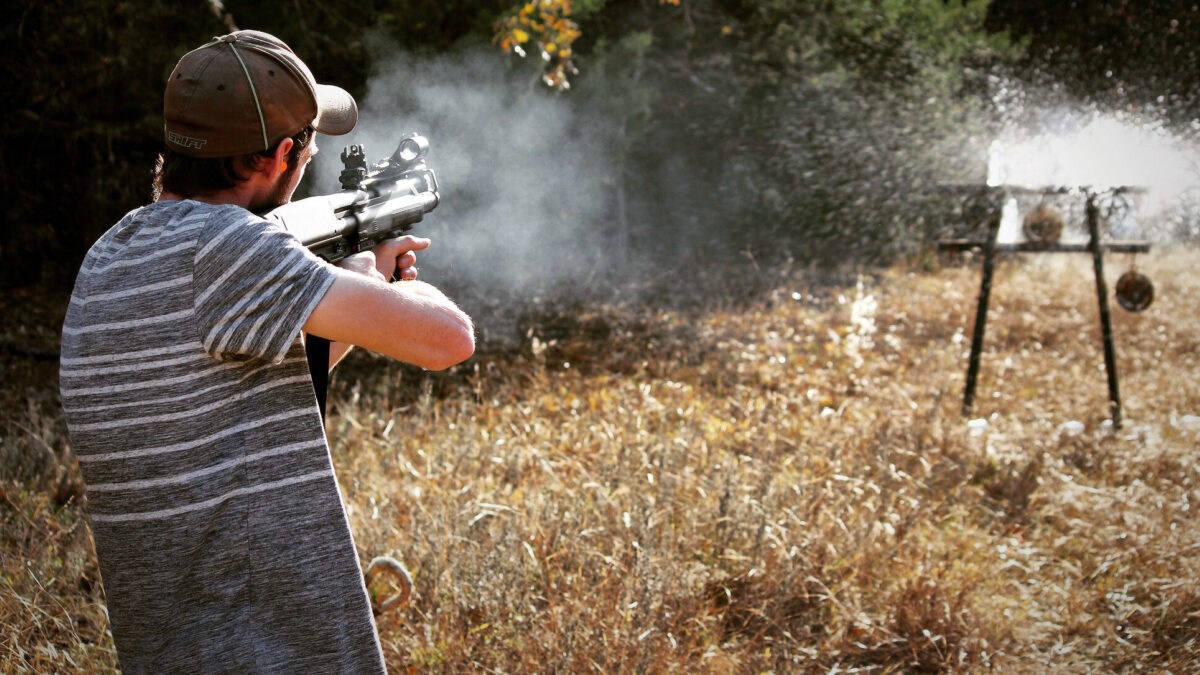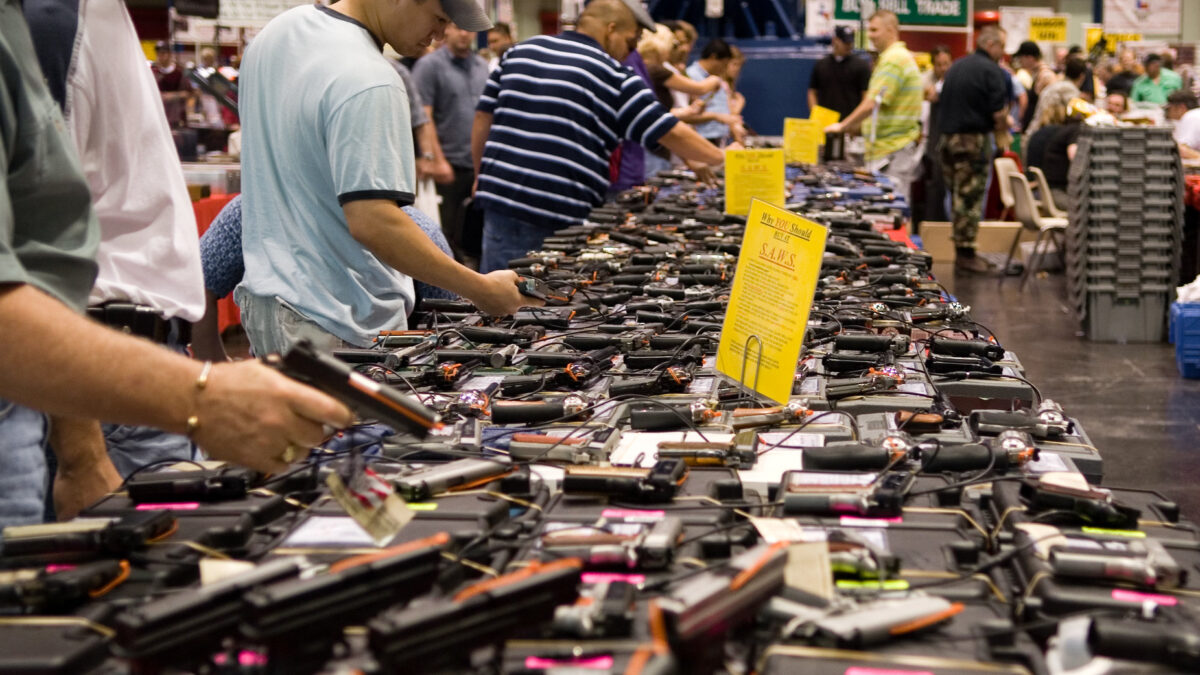White people own guns — and oppose gun-control legislation — because they are racist and fear black people. Two new studies advance this dangerous narrative building among our academic elites. While such rhetoric is perhaps unsurprising among political pundits or celebrities, otherwise serious academics are now ascribing racist motives to gun ownership and opposition to gun control. These studies are not only based on a slew of bigoted assumptions, but also bad science.
The University of Wisconsin recently promoted a new study contending that in U.S. counties where black people were enslaved in 1860, gun ownership is higher today. In fact, gun ownership, they say, is correlated to the number of slaves formerly in each county. To support this more-slaves-means-more-guns theory, the authors construct a historical narrative that whites feared newly freed slaves, bought guns for self-defense, and then this fear somehow trickled down over 160 years.
But interestingly enough, just last month, National Public Radio ran a story on how black people are the fastest growing group of gun owners. If gun ownership is a product of white people being racist, then this is quite curious.
The University of Wisconsin study suffers from a series of flaws, even apart from its poisonous premise that white people believe or feel certain things because they are white. You’d never say the same about other races, and we shouldn’t give a pass to academics who traffic in the same type of racism.
Alternative Explanations
In any correlational study like this, one must be concerned about the potential for alternative explanations. And a study with the punchline “because slavery” leaves a lot of room for alternatives. For example, the extent of slavery in southern U.S. counties was far heavier in areas of the south that remain rural to this day. The so-called “Black Belt” of southern agriculture that stretched across Georgia to Mississippi remains heavily agrarian, rural, and impoverished today relative to other parts of the region that have been absorbed into growing metropolises like Atlanta, Charlotte, and Nashville. In these regions, the wide-scale hunting of deer, quail, and even wild boar remains more prominent and may explain higher levels of gun ownership, yet this fact remains unaccounted for in the study.
Next, the authors peddle a sort of “Facebook-friend racism theory” that is, charitably speaking, laughable. The authors propose that counties that are more socially connected with southern counties have higher rates of gun ownership. Apparently, having a southern Facebook friend makes you afraid of black people. Again, several alternative explanations come to mind. Most importantly, one would expect non-slave-holding counties located near slave-holding counties to have both social ties and a similar culture of gun ownership. The paper did not account for this. Additionally, with the increasing mobility of Americans, it is unclear that ties to someone who lives in an area that once had slaves bear any relationship to that area’s slave-owning past. Why would it? A study unnecessarily laden with such racial biases, paired with shaky scientific foundations, furthers the notion that this academic research is less about finding the truth than about bolstering some woke narrative.
A few days after the release of the slavery-predicts-gun-ownership study, the American Psychological Association (APA) released another study contending that whites support gun rights because they are racist, and when whites oppose gun rights, that’s also racist.
Flawed Determination of Racism
In setting up its key findings about “racist” white Americans, the APA study uses what’s known as an Implicit Association Test (IAT) to identify whether study participants harbored racial resentment. IATs attempt to measure biases that exist below the surface through the matching of terms, phrases, or pictures. In this case, for example, the study had participants pair gun rights terms (e.g. “hunting”) or gun-control phrases (e.g. “gun free zone”) with white faces and black faces. Also, the study had participants measure their agreement with certain statements such as “Irish, Italians, Jewish, and many other minorities overcame prejudice and worked their way up. Black people should do the same without any special favors.” Apparently, how a participant matched faces, or agreed with a particular statement (on a scale of 1 to 5), allowed the study authors to determine whether a participant was racist.
While IATs once represented an intriguing method of uncovering unvoiced racism, the technique has come under increased criticism in recent years. In particular, it is largely accepted that a single IAT is not sufficient to uncover racial bias, even by those who created the test. Manhattan Institute Fellow Heather MacDonald has extensively catalogued the serious academic criticisms of IATs.
There are many valid policy and legal arguments opposing all sorts of gun-control proposals. But academics are attempting to short circuit the debate by simply labeling opponents as “racist” and gun owners as harboring “white fear.” Discrediting opponents with ad hominem attacks like “racist” is offensive and wrongheaded on its own. But employing “science” based on discredited theories or faulty assumptions is a dastardly attempt to foment racial divisions.









